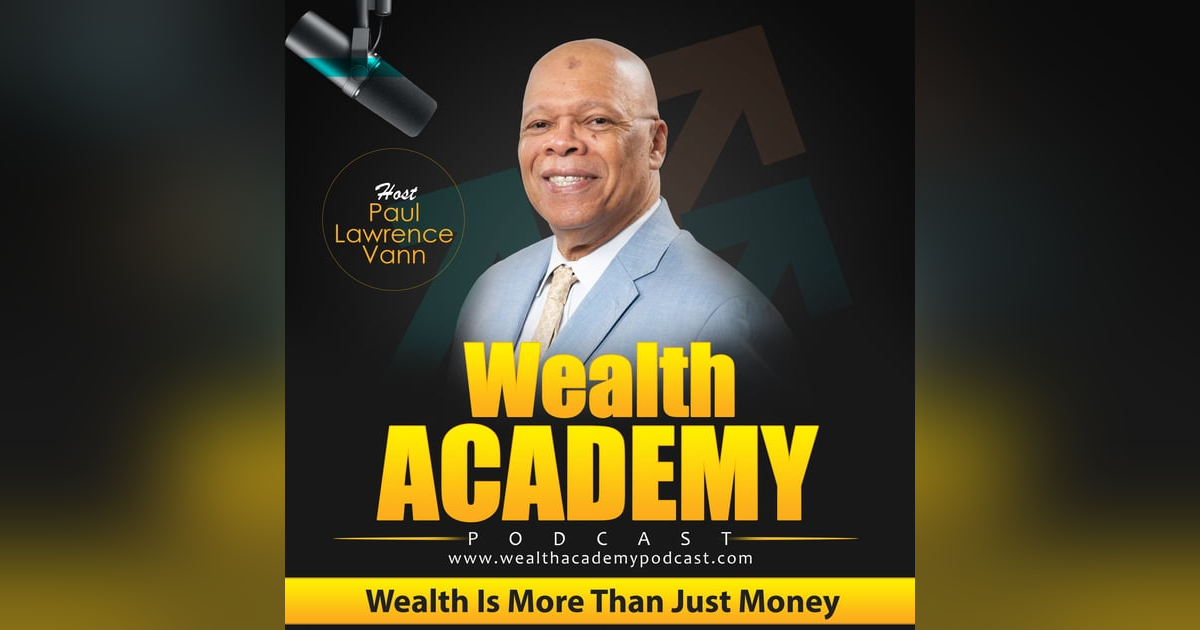225 National Financial Literacy Month - Day 18 - Insurance & You


So what does your investment portfolio look like? This episode is centered on a multiplicity of reasons why you should have an insurance policy as part of your portfolio. It is better to have an insurance policy and not need it than to not have one and need it.
One can say the difference between an individual and or family with insurance and those that don't are like night and day, because of the bottom line on your financial standing. Paul shares insight on the difference between term insurance and whole life insurance and the difference it can make for your life and family.
What is term life insurance? Term Insurance covers you for a set period of time or term, anywhere from5 to 30 years, as long as you pay premiums, this is key. If you die during that term, your beneficiaries receive the payment amount of a $25k and or $100k term policy.
If you’re alive when the policy expires, the insurance coverage ends. You no longer pay premiums and you don’t receive any payout from the insurance company. A convertible term policy allows you to switch to a whole life policy when your term insurance ends, but your premium will rise as a result of your age and health at the time.
What is whole life insurance? Whole Life Insurance covers you for your entire life and pays the insurance amount to your beneficiaries. Varieties of whole life insurance include straight life, universal life, variable life, and variable/universal life. Talk to CPA or an insurance professional for more details.
Unlike a term life policy, whole life policies feature an investment element. Your insurance premiums include not only the cost of the insurance but also an additional amount that is invested and that grows tax-deferred over the life of the policy. You can borrow against this amount and any loans are deducted from the benefit your beneficiaries receive when you die.
A few questions you must address prior to getting an insurance policy:
1. How much does it cost? The monthly premiums for a term life insurance policy are generally lower than for a whole life policy. One concern, though, is that if you want a new term life policy when the old one expires, you may have to pay more. That’s because life insurance premiums are based at least in part on your age and health. For example, let's say you buy a 30-year term life policy when you are 30 and the term expires when you are 60. If you decide to get another policy you will pay more because you will be a higher risk from an insurance standpoint.
2. What are your goals? If you would like to use insurance to give your heirs a certain amount when you die, whole life is the most reliable option. Remember, though, that insurance is not your only investment choice and that you may get better returns from another investment vehicle, such as stocks and bonds or a wide range of other investments.
3. How should you choose your insurance company? Companies like A.M. Best, Fitch Ratings, Moody’s Investors Service and Standard & Poor’s Ratings Services rate insurance companies based on their financial stability. These ratings can be found online. You can also turn to your state insurance company for information on complaints against different insurance companies.
The bottom line is that it is better to have life insurance in your portfolio. Talk to an insurance professional about this to get even more insight as it pertains to your unique situation.
Learn about Paul Lawrence Vann's digital Financial Fitness course, it is being offered at a 50% discount throughout the month of April, National Financial Literacy Month, here is the link: https://bit.ly/3dbperG
Support this podcast at — https://redcircle.com/wealth-academy-podcast-wealth-is-more-than-just-money/donations




